9 start with F start with F
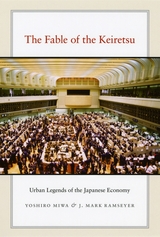
In their insightful analysis, the authors show that the very idea of the keiretsu was created and propagated by Marxist scholars in post-war Japan. Western scholars merely repatriated the legend to show the culturally contingent nature of modern economic analysis. Laying waste to the notion of keiretsu, the authors debunk several related “facts” as well: that Japanese firms maintain special arrangements with a “main bank,” that firms are systematically poorly managed, and that the Japanese government guided post-war growth. In demolishing these long-held assumptions, they offer one of the few reliable chronicles of the realities of Japanese business.
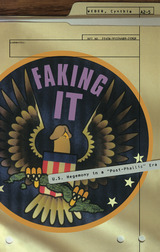

In this penetrating critical analysis of Louis Farrakhan's ascent to national influence, Robert Singh argues that the minister's rise to prominence is a function of race and reaction in contemporary America. Singh probes the origins and significance of Farrakhan in American politics.
Drawing on published and unpublished records, personal interviews, and Farrakhan's writings and speeches, Singh places Farrakhan expressly within the "paranoid style" of such reactionaries as Jesse Helms and Joseph McCarthy. Examining Farrakhan's biographical details, religious beliefs, political strategies, and relative influence, Singh argues that Farrakhan is an extreme conservative who exploits both black-white divisions and conflicts within the black community for personal advancement.
Singh proposes that Farrakhan's complex appeal to African-Americans is based on his ability to orchestrate the diffuse forces of African-American protest against the status quo. Paradoxically, says Singh, Farrakhan has achieved his position in part by positioning himself against most African-American political leaders, a tactic made possible by the extent to which black American politics now displays the same basic features as American politics in general. By stoking the fires of fear and hatred yet effecting no real changes, Farrakhan poses a greater threat to black Americans than to whites.
The Farrakhan Phenomenon is written in a clear, accessible style that will appeal to general readers concerned about race relations as well as to scholars of American history and politics. It reveals a shrewd opportunist who has capitalized on America's continuing failure to deal with its serious and abiding race problems.

The relationship between Western democracies and Islam, rarely entirely comfortable, has in recent years become increasingly tense. A growing immigrant population and worries about cultural and political assimilation—exacerbated by terrorist attacks in the United States, Europe, and around the world—have provoked reams of commentary from all parts of the political spectrum, a frustrating majority of it hyperbolic or even hysterical.
In The Fear of Barbarians, the celebrated intellectual Tzvetan Todorov offers a corrective: a reasoned and often highly personal analysis of the problem, rooted in Enlightenment values yet open to the claims of cultural difference. Drawing on history, anthropology, and politics, and bringing to bear examples ranging from the murder of Theo van Gogh to the French ban on headscarves, Todorov argues that the West must overcome its fear of Islam if it is to avoid betraying the values it claims to protect. True freedom, Todorov explains, requires us to strike a delicate balance between protecting and imposing cultural values, acknowledging the primacy of the law, and yet strenuously protecting minority views that do not interfere with its aims. Adding force to Todorov's arguments is his own experience as a native of communist Bulgaria: his admiration of French civic identity—and Western freedom—is vigorous but non-nativist, an inclusive vision whose very flexibility is its core strength.
The record of a penetrating mind grappling with a complicated, multifaceted problem, The Fear of Barbarians is a powerful, important book—a call, not to arms, but to thought.

The 1989-91 upheavals in Eastern Europe sparked a turbulent process of social and economic transition. Two decades on, with the global economic crisis of 2008-10, a new phase has begun.
This book explores the scale and trajectory of the crisis through case studies of the Czech Republic, Hungary, Latvia, Poland, Russia, Ukraine and the former Yugoslavia. The contributors focus upon the relationships between geopolitics, the world economy and class restructuring.
The book covers the changing relationship between business and states; foreign capital flows; financialisation and asset price bubbles; austerity and privatisation; and societal responses, in the form of reactionary populism and progressive social movements.
Challenging neoliberal interpretations that envisage the transition as a process of unfolding liberty, the dialectic charted in these pages reveals uneven development, attenuated freedoms and social polarisation.
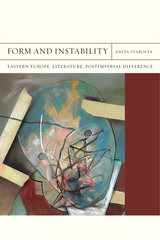
Located at the intersection of comparative literature, area studies, and literary theory, this interdisciplinary study has a twofold commitment: to Eastern Europe on the one hand and to literature on the other. It aims to intervene in the way we conceive of Eastern Europe by seeking to develop a more equitable way of thinking, one that avoids subordinating it to Eurocentric narratives of progress. At the same time, it marshals literature as both object and method of this rethinking, in order to extend existing conceptions of the usefulness and of the proper organization of literary studies. The three terms in the title of this book mark a passage—via literature—from “Eastern Europe” as an inadequate and obsolescent category to “post-imperial difference” as a more accurate, if provisional, account of the region. By way of original readings of particular texts, and by attending to literature as a critical
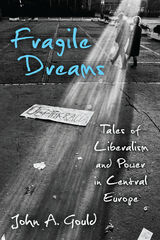
In Fragile Dreams, John A. Gould examines Central European communism, why it failed, and what has come since. Moving loosely chronologically from 1989 to the present, each chapter focuses on topics of importance to the fields of comparative politics, sociology, and feminist and gender studies. He draws heavily from his own research and experience as well as case studies of the former Czechoslovakia, Western Balkans, and Hungary—but much of the analysis has general applicability to the broader postcommunist region.
Broad in its coverage, this academically rigorous book is ideal for students, travelers, and general readers. Gould writes in the first person and seamlessly blends theory with stories both from the existing literature and from 30 years of regional personal experience with family and friends. Throughout, Gould introduces key concepts, players, and events with precise definitions. Wherever possible, he emphasizes marginalized narratives, centering theory and stories that are often overlooked in standard comparative political science literature.
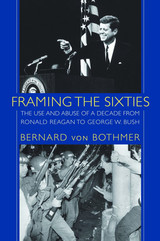
In Framing the Sixties, Bernard von Bothmer examines this battle over the collective memory of the decade primarily through the lens of presidential politics. He shows how four presidents—Ronald Reagan, George H. W. Bush, Bill Clinton, and George W. Bush—each sought to advance his political agenda by consciously shaping public understanding of the meaning of "the Sixties." He compares not only the way that each depicted the decade as a whole, but also their commentary on a set of specific topics: the presidency of John F. Kennedy, Lyndon Johnson's "Great Society" initiatives, the civil rights movement, and the Vietnam War.
In addition to analyzing the pronouncements of the presidents themselves, von Bothmer draws on interviews he conducted with more than one hundred and twenty cabinet members, speechwriters, advisers, strategists, historians, journalists, and activists from across the political spectrum—from Julian Bond, Daniel Ellsberg, Todd Gitlin, and Arthur Schlesinger to James Baker, Robert Bork, Phyllis Schlafly, and Paul Weyrich.
It is no secret that the upheavals of the 1960s opened fissures within American society that have continued to affect the nation's politics and to intensify its so-called culture wars. What this book documents is the extent to which political leaders, left and right, consciously exploited those divisions by "framing" the memory of that turbulent decade to serve their own partisan interests.
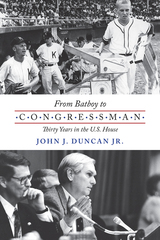
On October 10, 2002, Congressman John J. Duncan Jr. cast a vote in the U.S. House that he thought might end his political career. Going against his own party, he was one of only six House Republicans who voted against the Iraq War resolution. Constituents in his district were shocked, but over time Duncan felt his least popular vote became his most popular one—and probably the most significant in his thirty-year political career.
Congressman Duncan served as U.S. Representative for Tennessee’s Second Congressional district from 1988 to 2019. While he could have written a dense political memoir, in From Batboy to Congressman, Duncan employs a journalistic flair to provide just the right insight into a series of anecdotes from his storied life. Duncan’s family, early life, and time as a lawyer and judge all figure into the generous narrative, shared with both warmth and a self-deprecating sense of humor. He details unique experiences meeting celebrities, presidents, and sports stars; and, of course, he shares insights into the decisions that charted his Congressional career on issues such as Iraq, NAFTA, and concern for fiscal responsibility. Over his decades-long career, Duncan was known for his commitment to constituent service—even among constituents who disagreed with his views—so he offers a refreshing perspective on bipartisanship and connections across the aisle; indeed, he names conservatives, moderates, and liberals alike among his closest friends.
While this book contains timely reflections on issues of war and poverty, of leadership and the lack of it, of the proper relationship between citizens and government, its intention is to highlight moments in a singular career. “As you will read in this book,” writes Congressman Duncan, “every job gave me strange, funny, unusual stories.”
READERS
Browse our collection.
PUBLISHERS
See BiblioVault's publisher services.
STUDENT SERVICES
Files for college accessibility offices.
UChicago Accessibility Resources
home | accessibility | search | about | contact us
BiblioVault ® 2001 - 2024
The University of Chicago Press









